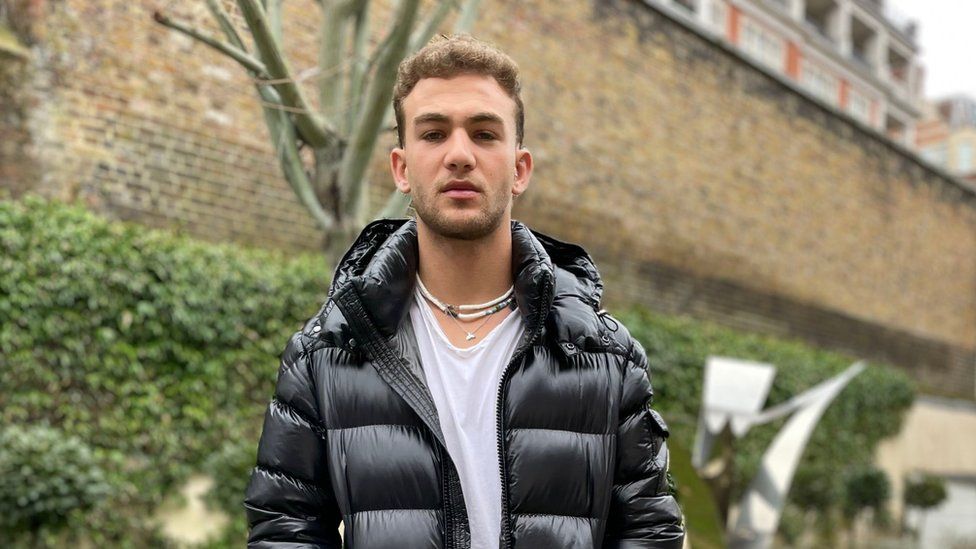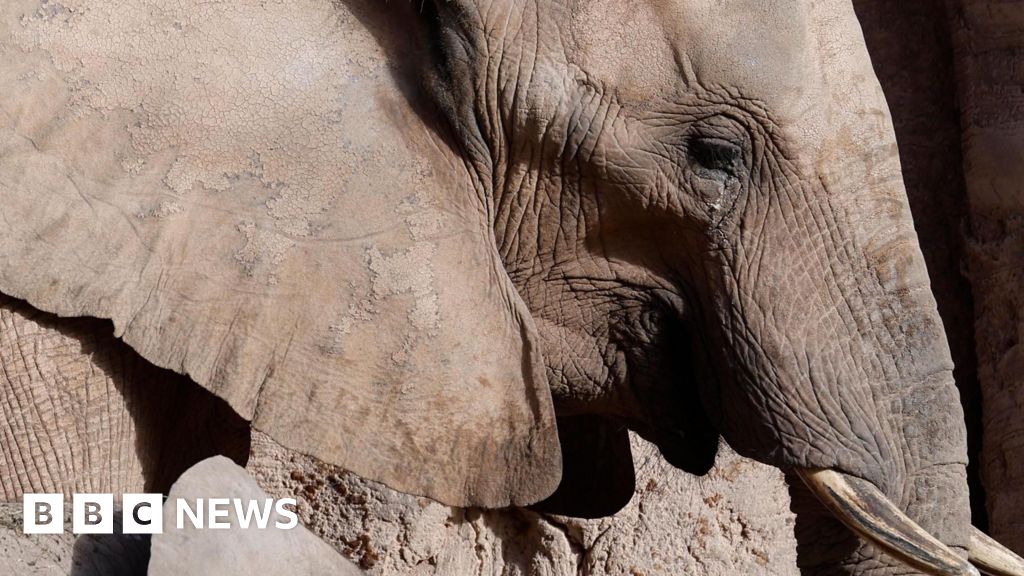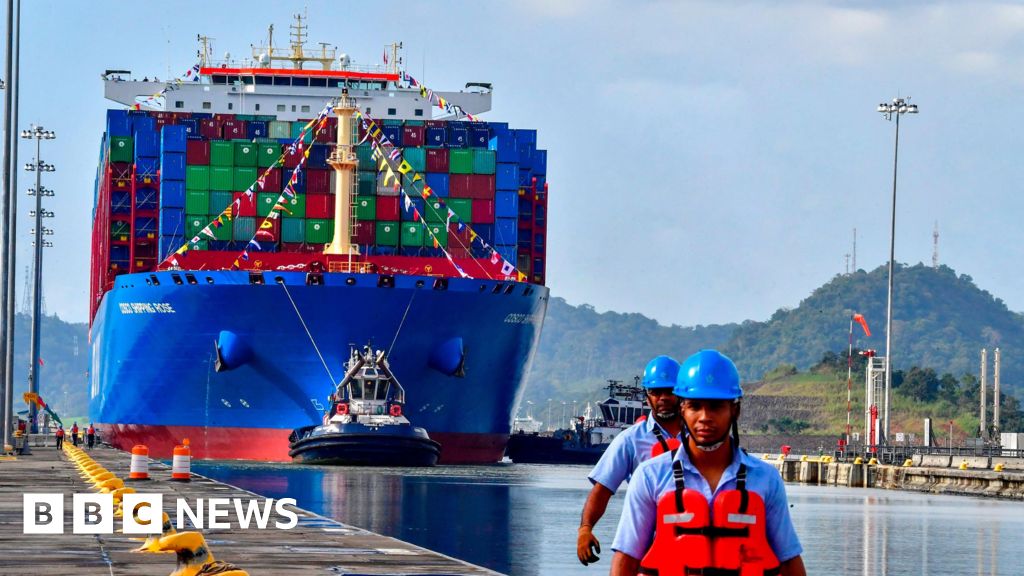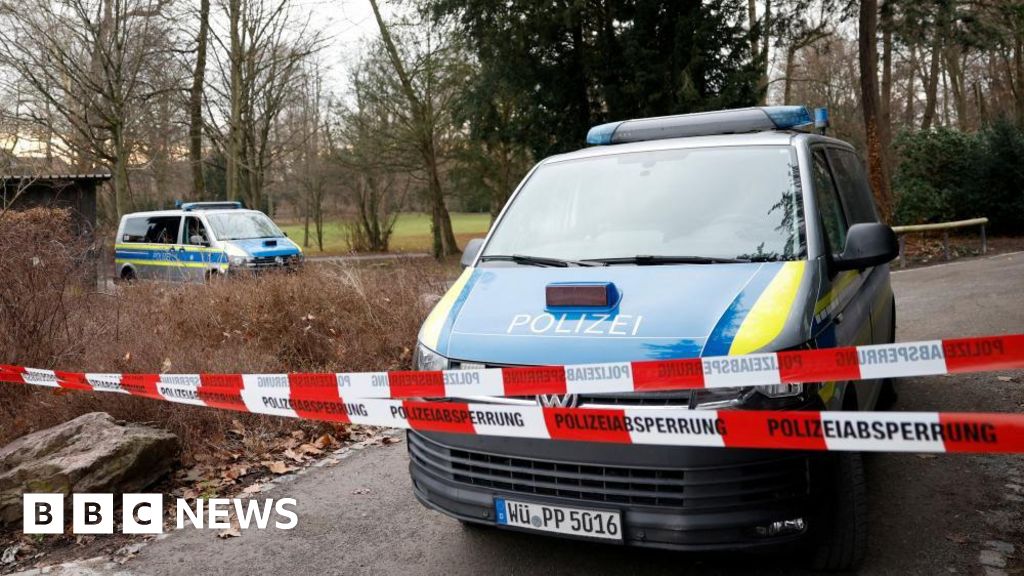ARTICLE AD BOX

Itay Regev was among 105 hostages who were released during a brief truce in November
An Israeli hostage freed from Gaza three months ago has accused the world of forgetting those still held by Hamas and urged the Israeli government to do whatever it takes to bring them home.
Itay Regev, 19, told the BBC he was held in "horrific" conditions by "very, very vicious" captors and he did not think he would get out alive.
He was kidnapped from the Nova music festival with his sister and a friend.
Talks on a ceasefire and hostage exchange have been ongoing for weeks.
But as yet there is no deal, with reported sticking points including Hamas's demand for a permanent ceasefire and Israeli troop withdrawal from Gaza, which Israeli Prime Minister Benjamin Netanyahu has called "delusional".
However, Itay - who was released along with his sister, Maya, and 103 other hostages in return for some 240 Palestinian prisoners in Israeli jails during a brief truce in November - is clear about what needs to happen.
"I think we should do anything we possibly can to get them out of there, whatever the cost... It's people's lives," he said, speaking to the BBC in London in his first UK interview.
"I'm sure if anyone had their child kidnapped, they wouldn't really care about what price needed to be paid. We need to return the hostages at any cost."
About 130 hostages, including Itay's friend Omer, are still being held in Gaza. Israeli officials have said they believe about 30 of those still in Gaza are dead.
Itay is in London to raise their plight with British MPs - he said he was there to "scream their cries from Gaza" - and wants the international community to do more to secure their release.
"The hostages have been there for five months now. The answer is unequivocally, no they're not doing enough," he said.
"For five months not to see the sunlight and you don't know what's happening with your family, for five months to be in horrific conditions and hungry... They have to be taken out of there as quickly as possible. They have the horrible feeling of not knowing what their fate will be from one second to the next."
Describing his 54 days of captivity, Itay said he had to come to terms with the fact that he might be killed.
"We were very, very hungry. I didn't have a shower for 54 days. My captors were very, very vicious. They didn't care. I had wounds in my legs, big holes in my legs.
"And you lived there in a horrific sense of fear. Every second that you live with this feeling is a terrible feeling, that you don't really know if you're going to wake up in the morning, or in a minute, if a missile is going to fall on you, if they're going to come in with a Kalashnikov and start spraying us with bullets. The conditions are very, very difficult there."
Image source, Reuters
Image caption,More than 360 young partygoers were shot, beaten or burnt to death at the Nova festival and another 40 taken hostage
The war began when Hamas gunmen attacked southern Israel on 7 October, killing about 1,200 people and seizing 253 hostages. More than 31,200 people have been killed in Gaza since then, the Hamas-run health ministry says.
During their early morning assault, Hamas attackers stormed the Nova music festival site near the Israel-Gaza perimeter fence.
More than 360 young partygoers were shot, beaten or burnt to death. Another 40 were taken hostage, including Itay.
He remembers hearing rockets and shooting as gunmen encircled the festival, followed by screaming.
"We went in a vehicle trying to escape the place and after five minutes, we encountered a van of terrorists spraying all the vehicles with bullets without any mercy. I got shot in my leg. My sister also got shot in the leg," he said.
"And the terrorists got out of the van. They pulled me out, they tied my hands, and simply started driving into Gaza."
He said he thought he would be murdered when he was taken, with Hamas fighters making throat-slitting gestures at him.
"I saw my sister Maya injured and crying. Maya also that day said goodbye to me and told me if I come out of this alive, tell our parents that she loves them. This is a day I will never forget for the rest of my life."
Initially, he was taken to a house with a tunnel entrance inside and then, he believes, to a hospital.
"We entered Gaza and the terrorists started shouting and screaming and celebrating. It was like a big party. They brought us into the house and in the middle of that house there was a shaft. They made us go down into it."
He said he was taken to a hospital where a "very, very anxious" doctor and several Hamas fighters were present. The doctor took the bullet from his leg without any anaesthetic or painkillers, he said.
"They put the forceps into my leg and they pulled out the bullet without anaesthetics. They told me to be quiet because if I wasn't quiet they'll kill me. In all that time there was more abuse, slaps to the face, spitting."
Image source, Reuters
Image caption,Itay and Maya, both shot in the leg, underwent hospital treatment after their release
He was separated from Maya, who was also given medical treatment. Her dangling foot was re-attached in surgery, but sideways, at an unnatural angle.
But they still managed to communicate. Maya's request to see her brother was refused by her captors, but they passed on a note from her. Itay wrote back and they communicated in this way throughout their ordeal.
Maya, who was unable to walk when she was released, is now undergoing extensive rehabilitation on her leg.
Itay, who turned 19 last week, is happy to have his freedom but struggles when others like his friend Omer are still held hostage there.
"Why is Omer still there and I'm here? Sometimes I feel bad about it. I would simply do anything to bring him back," he said.
"I was there with him and I know exactly how he is feeling and I want to shout his cry on his behalf because he can't do it himself. He's helpless."

 10 months ago
17
10 months ago
17








 English (US) ·
English (US) ·